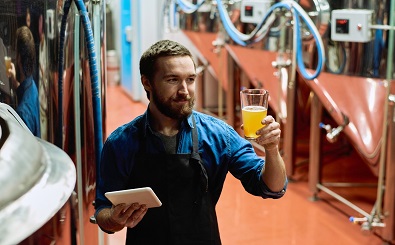What goes with anything Aussie? A beer of course – and craft beers are quickly becoming the go-to drop for so many Australians with a thirst for the gourmet. Sours, IPAs, NEIPAs, Porters, Stouts, and the weird and wonderful ingredients that go in them are all the rage. In fact, it’s an industry worth $807 million and growing.
With new craft breweries seemingly appearing overnight (28 in NSW in 2018), long-time enthusiasts may want to try their hand in brewing themselves.
While they may have mastered the art and craft of beer, the realities of business are something else entirely. For example, the Black Hops Brewery in Queensland had to “navigate the valley of death” between starting up a small boutique brewery and something larger in scale – and that actually turned a profit.
So how can you avoid Death Valley and finance your craft brewery the right way?
Know your state regulations
If you’re planning on making a product that gets people tipsy, high, or somewhere in between, the government will be all over it with regulation and taxes. Each state has a different set of regulations governing the production and sale of alcoholic beverages. Before you add hops to water, you should be across all the regulations – and possible grants or incentives. The NSW government released an Independent Brewers Action Plan in 2020, encouraging investment and networking in the industry. Running afoul of the rules can set you back in time and more importantly, money.
Have a solid action plan
You and your business partners need to have a plan for the business – though having a home tank is all fun and games, making sure your business is set up the right way is crucial. Professional levels of production require professional equipment and space to grow. How much will it cost? What volume are you planning to produce? What’s your break-even point? When will you turn a profit? These are questions investors and banks will ask you, too. The bootstrapping “Beer-trepreneur” will forever been stymied by expenses both in terms of sunk capital and running costs, with every ounce of profit going back into the business. It is around this time that businesses start considering different forms of finance.
Look for business finance – a chattel mortgage
With the rebate increase on beer excise soon to take effect, many breweries or start-ups will be investing in new equipment. Every business runs on elbow grease, lightbulb moments, and OPM (Other People’s Money). However, getting funding is a first priority.
For a business that operates with an ABN and is registered for GST a chattel mortgage might be the right option. Put simply, a chattel mortgage is a type of loan (mortgage) for purchasing business assets (chattel.)
One of the key benefits of applying for a chattel mortgage is that you own the asset from the get-go. For a brewery looking to upgrade with new fermenters or perhaps even a canning line, they can increase their capacity instantly. As the asset is used as security on the loan, the interest charged on a chattel mortgage is usually lower than alternatives.
Bill Tsouvalas, Managing Director at Savvy, a national business finance brokerage (and Pale Ale fan) says that chattel mortgages are flexible, have many tax incentives, and can help businesses of all sizes gain access to the assets they need to get off the ground.
“Chattel mortgages have a slew of tax benefits such as the ability to claim the interest paid, GST, and depreciation on your assets by way of your activity statement. You can lock in a competitive rate for the usual five years – or anywhere between 12 months and seven years. Chattel mortgages can help your start-up get its first Lauter Tun or Mash Tank just as well as its fifth or sixth.”
In addition to these incentives, your business can borrow more than the total value of the assets (under most circumstances). This means you can pay off installation, insurance, and other costs over time.
Remember to get professional advice before applying for any credit product.
This is a sponsored content piece brought to you by Savvy. To find out more talk to the Beer & Brewer sales manager.

